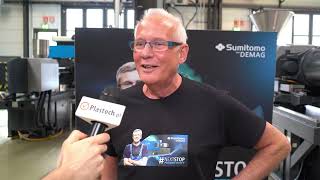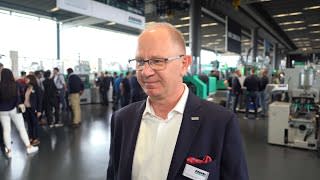 In 2012, the two Bavarian companies - KTW Kunststofftechnik Weißenburg and KraussMaffei Technologies in Munich - began a joint project aimed at reducing the rejection rate in the injection molding process. This is because, over time, component quality is influenced by external factors, even in processes with stable configurations. This is especially true when using recycled materials because this leads to frequent quality fluctuations in the raw material. But this is not the only important aspect. Room temperature and humidity can also influence the quality of finished products. To compensate for these fluctuations in the manufacturing process, KraussMaffei developed a new machine function, the Adaptive Process Control system (APC), and brought it to the production stage with the help of KTW.
In 2012, the two Bavarian companies - KTW Kunststofftechnik Weißenburg and KraussMaffei Technologies in Munich - began a joint project aimed at reducing the rejection rate in the injection molding process. This is because, over time, component quality is influenced by external factors, even in processes with stable configurations. This is especially true when using recycled materials because this leads to frequent quality fluctuations in the raw material. But this is not the only important aspect. Room temperature and humidity can also influence the quality of finished products. To compensate for these fluctuations in the manufacturing process, KraussMaffei developed a new machine function, the Adaptive Process Control system (APC), and brought it to the production stage with the help of KTW.KTW is a highly successful, medium-sized automotive supplier with sales that have almost tripled in the last five years. The company specializes in high quality exterior and interior components, such as finishers, paneling, covers, air ducts and wheel house shells, which are manufactured using both the standard injection molding process and through special processes involving multicomponent technology, over-molding of film or fabric and variotherm technology. KTW processes approximately 5000 tons of thermoplastic per year on a total of 21 injection molding machines. Since 1998, the company has relied solely on KraussMaffei injection molding technology. Since then, 14 fully automated machines in the clamping force range of 80 to 2300 tons have been purchased in multiple installments. In 2011, as part of a larger package, KTW acquired the MX 2300, which produces wheel house shells from recycled materials for a large German automaker. In order to gain experience with the new features during day-to-day production and to apply these experiences to the development process, KraussMaffei equipped this large machine with the APC process control system. The polyolefin recycled material produced by KTW for wheel house shells is stored in 80-ton silos. Depending on their origin, the recycled materials vary in terms of grain size, consistency and bulk density, leading to substantial fluctuations in viscosity. KTW uses the Adaptive Process Control system to intervene in the production process automatically, within definable limits, so that a change in material viscosity does not lead to fluctuations in component weight. Albert Burghart, Plant Manager of KTW in Weißenburg, explains this in more detail: "The use of the APC function enabled us to substantially improve continuous monitoring of melt quality, significantly reduce the subsequent rejection rate and guarantee precise traceability of the components down to the individual shot."




